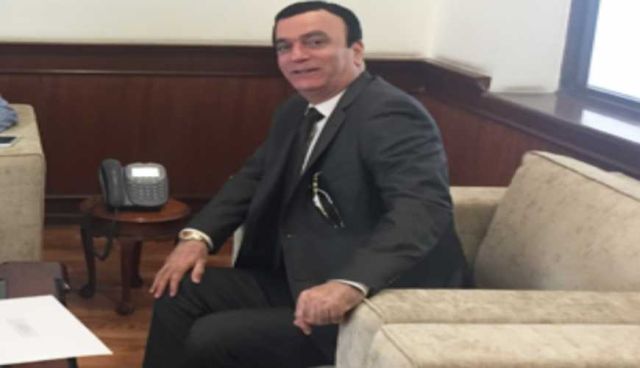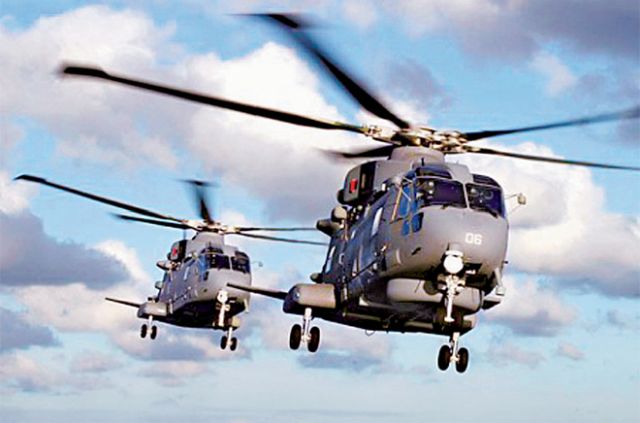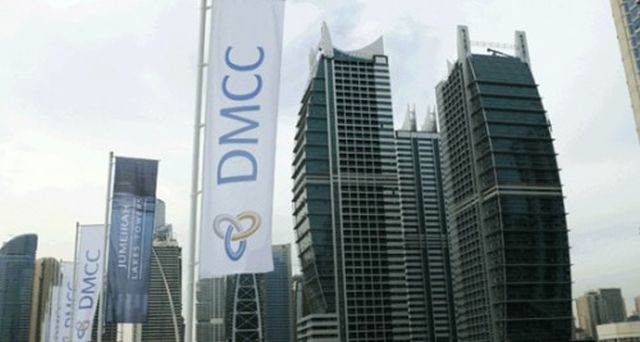
by admin | May 25, 2021 | Interviews

UAE Ambassador to India Ahmed Albanna
By Aroonim Bhuyan,
New Delhi : Even as the US-imposed sanctions on Iran has put India’s energy security in jeopardy, UAE Ambassador to India Ahmed Albanna has allayed fears of an oil shortage, saying his country as well as Saudi Arabia can fill in if supply from Iran is disrupted.
“In the international market, the law of demand and supply controls the prices,” Albanna told IANS here in an exclusive interview when asked about rising fuel prices in India.
“Production is the important element there… to ensure that the production is enough for the world consumption of oil,” he said.
He said that consumer countries have been faced with most of the problems because of challenges faced by some Organisation of Petroleum Exporting Countries (OPEC) countries as also non-OPEC countries.
However, at the same time, he said that India need not fear shortage of oil with the new US sanctions on Iran set to take effect in November this year. Iran is the second-largest supplier of crude oil to India, supplying more than 425,000 barrels of oil per day, and India is one of the biggest foreign investors in Iran’s oil and gas industry.
“There was some disruption during the embargo against Iran years ago,” Albanna said.
“Saudi Arabia was able to rectify the matter and supply India in the face of the shortage that took place because of the embargo,” he said.
“The same thing will happen this time I guess in November, when the embargo takes place.”
The Ambassador said that because India enjoys a “great relationship” with the United Arab Emirates (UAE), Saudi Arabia and Iraq, “the alternatives are there all the time”.
Regarding energy giants Abu Dhabi National Oil Company (Adnoc) and Saudi Aramco jointly investing in the development of the $44-billion Ratnagiri refinery and petrochemicals complex in Maharashtra, Albanna said that it is a “strategic project” with a trilateral arrangement.
“Due to the close and strategic relationship between the UAE and Saudi Arabia and between India and both UAE and Saudi Arabia, we have been able to reach such an agreement,” he said. “It will be beneficial to all parties.”
Earlier this year, the first consignment of two million barrels of crude oil from the UAE for India’s strategic petroleum reserve in Karnataka’s Mangaluru landed on the west coast. This consignment fills one of the two strategic reserve caverns at Mangaluru under an agreement between Adnoc and the Indian Strategic Petroleum Reserves Ltd (ISPRL).
Albanna also highlighted the close ties between India and the UAE which were elevated to that of a Comprehensive and Strategic Partnership during Prime Minister Narendra Modi’s visit to the Gulf nation in August 2015, the first prime ministerial visit from India to that country in 34 years.
This was followed by the visit of Abu Dhabi Crown Prince and Deputy Commander of the UAE Armed Forces to India Sheikh Mohamed bin Zayed Al Nahyan in 2016 and then again in 2017 as the chief guest for India’s Republic Day celebrations. Modi again visited the UAE last year where he delivered the keynote address at the World Government Summit in Dubai.
Stating that India is one of the first countries with which the UAE has signed a strategic agreement, he said there are collaborations at many different levels.
“Whether we talk about traditional sectors like oil and gas and the normal trade and also the new sectors such as cooperation in airspace, cooperation in IT, IT manufacturing, cooperation in security and security exchange, security information exchange, and also in solar energy,” he said.
“If we look at the bilateral trade between the UAE and India, India is trading partner number one (for the UAE) with a total value of $57 billion,” Albanna said.
“If we look at the Indian side, the UAE is the third-largest trading partner after China and the US.”
Stating that all these show the importance of the India-UAE relationship, the Ambassador said that it “reflects the vision of our leadership to look at this bilateral trade and to make it further grow”.
He also referred to UAE Foreign Minister Sheikh Abdullah bin Zayed Al Nahyan’s week-long visit to India last month and said that there are many outcomes of the visit “which we are now at the stage of following up and look at the best way of implementation”.
The UAE is home to a nearly three million-strong expatriate Indian population.
(Aroonim Bhuyan can be contacted at aroonim.b@ians.in)
—IANS

by admin | May 25, 2021 | Corporate, Corporate Buzz
 By Anand Singh,
By Anand Singh,
New Delhi : In a setback to efforts to extradite British national Christian Michel James — one of the alleged middlemen in the Rs 3,600 crore AgustaWestland VVIP chopper deal case — Indian authorities failed to produce any evidence before the UAE courts within the stipulated time, according to the lawyer of the accused.
The Indian government was supposed to produce evidence in the United Arab Emirates (UAE) court by May 19, 2018 against Michel. “But the government did not present any evidence,” Michel’s lawyer, Rosemary Patrizi Dos Anjos, told IANS over phone from Milan in Italy.
She said the government “does not have any evidence against” him and therefore its officials were unable to produce any, adding that there was “no evidence against Michel in Italy, Switzerland or India.”
Dos Anjos said the Indian government was given a further time of 45 days by the UAE court at its next hearing to produce evidence out of which 30 days had already expired without any movement.
Dos Anjos also said that Michel was questioned by CBI officials in Dubai a month ago. Michel is still in the UAE, according to her.
Neither the Enforcement Directorate (ED) nor the Central Bureau of Investigation (CBI) were willing to comment on the case.
In January this year, the ED had lodged a request with the UAE authorities for extraditing Michel. Both the ED and the CBI had filed chargesheets in bribery cases in Indian courts and non-bailable warrants had been issued against the accused.
Last year, a red corner notice was issued against Michel by the Interpol on a request by the CBI. RCNs were also issued against two Italians involved in the scam — Carlo Gerosa and Guido Haschke.
According to Indian investigative agencies, Michel had received at least Rs 235 crore for ensuring that the chopper contract went to AgustaWestland. He was a frequent visitor to India, having undertaken 300 trips to this country between 1997 and 2013.
ED sources said that bribes to Michel were paid through a web of companies located abroad and in India on the pretext of payment for consultancy work. He also used his Dubai-based firm Global Services FZE as a conduit for money.
In its chargesheet, the CBI had named former Indian Air Force chief S.P. Tyagi, his cousin Sanjeev Tyagi, alias Julie, the then IAF Vice Chief J.S. Gujral and advocate Gautam Khaitan as the four Indians involved in the scam. The chargesheet mentioned Khaitan as the “brain” behind the deal.
Others named in the chargesheet included Giuseppe Orsi, the former chief of Italian defence and aerospace major Finmeccanica and Bruno Spagnolini, former CEO of AgustaWestland, apart from middlemen Michel, Haschke and Gerosa.
On January 1, 2014, India cancelled the contract with Finmeccanica’s British subsidiary AgustaWestland for supplying 12 AW-101 VVIP choppers to the IAF, over alleged breach of contractual obligations and on charges of paying kickbacks amounting to Rs 423 crore.
The CBI, which registered an FIR in the case on March 12, 2013, had alleged that Tyagi and the other accused received kickbacks from AgustaWestland to help it win the contract. The FIR mentioned charges of criminal conspiracy, cheating and those under the Prevention of Corruption Act.
According to the CBI, Tyagi allegedly took bribes of several crores from AgustaWestland through the middlemen — and a complex set of companies in several countries — to change the specifications of the contract. The operational flight ceiling of the choppers was reduced from 6,000 metres, as originally proposed, to 4,500 metres and the cabin height was brought down to 1.8 metres.
The twin modifications were allegedly meant to rig the deal in favour of AgustaWestland, which eventually walked away with the order to supply the 12 choppers for the Communication Squadron of the IAF for ferrying the President, the Prime Minister and other VVIPs.
The CBI probe revealed that several payments were made to the Tyagis by Haschke, Gerosa and Michel.
Tyagi, who was IAF chief from 2004 to 2007, his cousin and Khaitan were arrested in December last year by the agency. They are now out on bail.
(Anand Singh can be contacted at anand.s@ians.in)
—IANS

by admin | May 25, 2021 | Business, Corporate, Corporate Buzz, Investing, Large Enterprise, Muslim World
 Dubai : The United Arab Emirates (UAE) flagship carrier Emirates Airline has launched a joint project with US Crop One Holdings to build the world’s largest vertical farming facility near Dubai’s Al Maktoum International Airport, it was announced on Tuesday.
Dubai : The United Arab Emirates (UAE) flagship carrier Emirates Airline has launched a joint project with US Crop One Holdings to build the world’s largest vertical farming facility near Dubai’s Al Maktoum International Airport, it was announced on Tuesday.
Emirates Flight Catering (EKFC), the flight catering division of Emirates, and Crop One, a leading global vertical farm operator, will co-invest $40 million in the large project, the statement said.
Sheikh Ahmed bin Saeed Al Maktoum, chairman and chief executive officer of Emirates, said the massive investment “aligns with the UAE’s drive for more agricultural self-sufficiency”.
“The introduction of ground-breaking technology at the facility also enhances Dubai’s position as a global innovation hub,” he added.
When complete, the vertical farm facility will cover an area of 12,077 square metres with an output equivalent to 3.64 million square metres of farmland.
“Our proven business model has demonstrated profitable commercial production longer than any other major vertical farmer,” said Sonia Lo, chief executive officer of Crop One Holdings.
At full production, the facility will harvest 2,700 kg of high-quality, herbicide and pesticide-free leafy greens daily, using 99 percent less water than outdoor fields, according to the statement.
The construction of the facility is scheduled to start in November and will take around one year to complete.
The first products are expected to be delivered to EKFC’s customers, including 105 airlines and 25 airport lounges, in December 2019.
—IANS

by admin | May 25, 2021 | Business Summit, Events, Muslim World, Social Round-up
 Dubai : The United Arab of Emirates (UAE) will host a two-day “World Tolerance Summit” in November, it was announced.
Dubai : The United Arab of Emirates (UAE) will host a two-day “World Tolerance Summit” in November, it was announced.
The International Institute for Tolerance, part of Mohammed Bin Rashid Al Maktoum Global Initiatives, announced the launch from November 15-16 to coincide with the International Day of Tolerance, the report said on Monday.
With its theme, “Prospering From Pluralism: Embracing Diversity through Innovation and Collaboration”, the summit will host a large gathering of 1,000 government leaders, key personalities from the private and public sectors, youth representatives, social leaders, social influencers and the international diplomatic community.
The platform will seek innovative solutions and forge fruitful partnerships to help promote respect for diversity and productive pluralism.
Sheikh Nahyan bin Mubarak Al Nahyan, Minister of Tolerance and Chairman of the Board of Trustees of the International Institute for Tolerance, said: “Tolerance is not simply enduring the existence of opinions, ideas, behaviours or practices that do not concur with your own. It is about recognising, respecting and embracing diversity.
“It is about being secure in your own culture and beliefs, so that you respond to what is different with curiosity and compassion rather than with fear and intolerance. To be tolerant one needs to be concerned genuinely for the welfare of one’s fellow human beings and to take action based on those concerns.”
The summit will also explore the use of social media and digital networking in advocating the significance of tolerance with respect to its societal and economic benefits.
Several workshops will also be organised on topics like, “The Youth of Today, The Leaders of Tomorrow; Women Empowerment in the Development of Country; A Tolerant Country, Happy Society; Understanding and Learning the Science Behind Tolerance; and Using Arts and Sports in Promoting Tolerance.
—IANS/WAM

by admin | May 25, 2021 | Commodities, Commodities News, Muslim World
 Dubai : The United Arab Emirates’ (UAE) biggest free zone Dubai Multi Commodities Center (DMCC) welcomed Islamic Bank of Afghanistan as its newest member, DMCC said on on Saturday.
Dubai : The United Arab Emirates’ (UAE) biggest free zone Dubai Multi Commodities Center (DMCC) welcomed Islamic Bank of Afghanistan as its newest member, DMCC said on on Saturday.
The bank, Afghanistan’s first Islamic bank, will use service facilities of DMCC in order to execute multi-currency trades in line with Islamic law, or Sharia, DMCC said in a statement.
The bank is licensed by the central bank of Afghanistan in April in line with interest-free, speculation-free Sharia principles, Xinhua reported.
It will use the DMCC Tradeflow, an online platform for registering ownership for commodities stored in Dubai, under the Murabaha transaction model “in order to take multi-currency trades from across the globe,” said the statement.
Murabaha is a key concept in Islamic financing, where a markup is known in advance between parties to help reduce ambiguities in the transaction.
Under Murabaha, the buyer buys a commodity and sells it at higher prices during an extended period and receives payment from his client in order to avoid interest, which is “haram” (prohibited) under Sharia.
“Our partnership will facilitate the bank’s Murabaha transactions to develop a wide range of new Islamic financial institutions,” said Sanjeev Dutta, Executive Director of commodities at DMCC.
The membership “will enable us to offer a broader range of Sharia-compliant financial products and services, and reach to the unbanked customers within our country,” said Amer Khalil-ur Rehmanm, CEO of Islamic Bank of Afghanistan, which runs 59 branches across its home market.
According to DMCC, more than 26,000 transactions were executed on the DMCC Tradeflow platform in the first quarter of 2018.
In the first four month of this year, DMCC Tradeflow has handled Sharia-compliant commodities worth $6.95 billion as 30 institutions from three continents were involved.
DMCC harbors more than 15,000 firms from 170 countries employing 60,000 people.
—IANS





